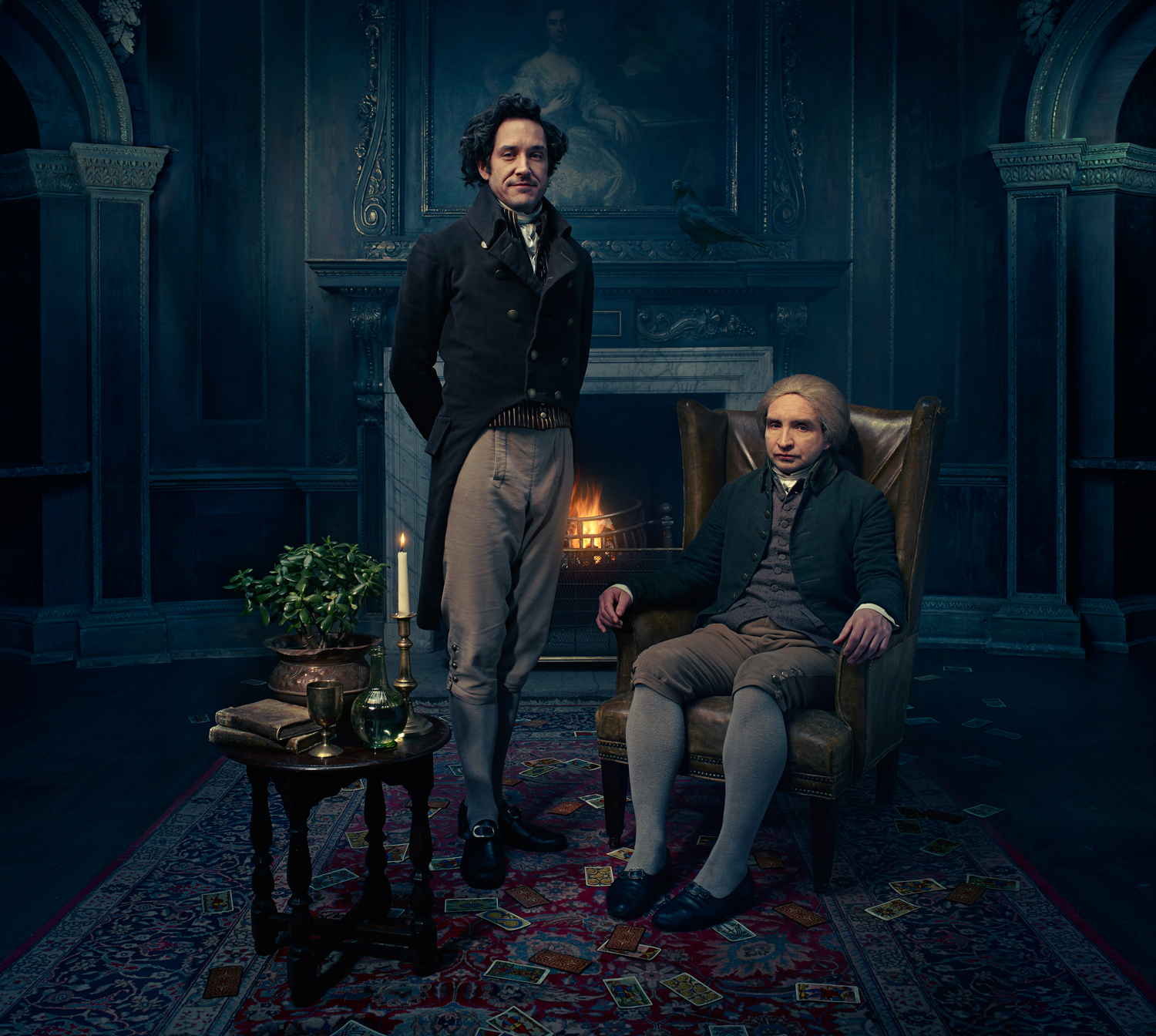
“He looks like a banker.”
Indeed, as one observer puts it, Gilbert Norrell (Eddie Marsan) isn’t the figure you imagine when you hear the word magician. Yet it is he, a pinch-faced, powder-wigged 19th century gentleman scholar from Yorkshire, who revives the practice of magic, gives the crown victory over Napoleon and becomes the chief, and only, magician in Britain. For now.
BBC America’s Jonathan Strange & Mr Norrell (premieres June 13), is, a bit like HBO’s Game of Thrones, set in a postmagical world, or rather one that believes that magic is no more. This time, however, it’s a version of our own, one where magic used to be practiced but pulled a disappearing act about 300 years ago. Now, in early-1800s Britain, the only people calling themselves “magicians” are street hucksters and stuffy academics, who study magic’s history without casting a single spell. (“You don’t expect an astronomer to create stars!” scoffs the head of the scholarly society The Friends of English Magic.)
Norrell, who has quietly amassed a monopoly on ancient spellbooks, changes all this with a public demonstration in which he brings the stone statues of a cathedral to life. Under the guidance of his imposing right-hand man Childermass (Enzo Cilenti), the reticent Norrell catches the attention of London society and politicians, who enlist him to create illusions to confound the French enemy.
England’s new hero–mild-mannered but inwardly vain and controlling–decides that the best way to keep magic “respectable” is to keep it to himself. This doesn’t last for long: at the same time, Jonathan Strange (Bertie Carvel), the flighty, ne’er-do-well son of an upperclass family, begins to teach himself magic without the benefit of Norrell’s library. When the autodidact appears out of nowhere and shows amazing talent, Norrell takes him as an apprentice, the better to keep a potential enemy close.
This begins a captivating seven-part miniseries (I’ve seen two episodes), based on Susanna Clarke’s 2004 novel, which combines high fantasy and historical fiction, a chilling tale of the supernatural and a subtle story of academic and social rivalry. As they delve into their studies and the war effort, Strange and Norrell become both partners and competitors, in equal earnest.
Norrell clearly feels threatened by the prodigy (though he hides it well) and Strange increasingly feels handcuffed by his master, yet there are moments when they’re carried away by their mutual admiration and excitement for the mystic art they’re restoring. They’re bound to conflict, and yet they’re the only two men in Britain who can really understand each other.
Strange and Norrell are not just opposite personalities but opposing ideas of Britain. Strange’s magic is wild and Celtic, drawing on ancient myths–in particular, the history of The Raven King, an ancient magician who harnessed the powers of nature and an extraworldly faerie kingdom. Norrell’s is staid and English; he wants to tame, deny and civilize that–to make it into a tidy English garden–but his hubris unleashes frightening forces. The restoration of magic is a bit like the Industrial Revolution and splitting the atom all in one, and it proves too much for Norrell to control—especially when, after encountering the limits of his own magic, he strikes a bargain with a wild-haired, David Bowie-esque faerie that leaves him and others in hock to some dangerous sprites.
The tone of this absorbing tale is a little eerie and a little quirky, somewhere between Westeros and Hogwarts. The adaption was inevitably going to lose some of the effect of Clarke’s novel, heavily footnoted and written in the style of 19th-century literature, giving it the unsettling feel of an unearthed occult document. BBC America’s miniseries is more whimsical and comic–sometimes a little too much in the now-familiar British TV mold of eccentric-genius stories like Sherlock and Doctor Who. (Carvel’s excitable Strange especially recalls both series, director Toby Haynes is a veteran of both, and writer Peter Harness worked on the latter.)
On the other hand, the plot-forward strategy necessitated by TV makes the series smart fun from the start, managing impressive spectacle even if it doesn’t have the visual firepower of the most epic Thrones episodes. Jonathan Strange and Mr Norrell is a fleet, entertaining transfiguration that keeps Clarke’s big ideas while pulling a few tricks from its own sleeve.
More Must-Reads From TIME
- The 100 Most Influential People of 2024
- Coco Gauff Is Playing for Herself Now
- Scenes From Pro-Palestinian Encampments Across U.S. Universities
- 6 Compliments That Land Every Time
- If You're Dating Right Now , You're Brave: Column
- The AI That Could Heal a Divided Internet
- Fallout Is a Brilliant Model for the Future of Video Game Adaptations
- Want Weekly Recs on What to Watch, Read, and More? Sign Up for Worth Your Time
Contact us at letters@time.com